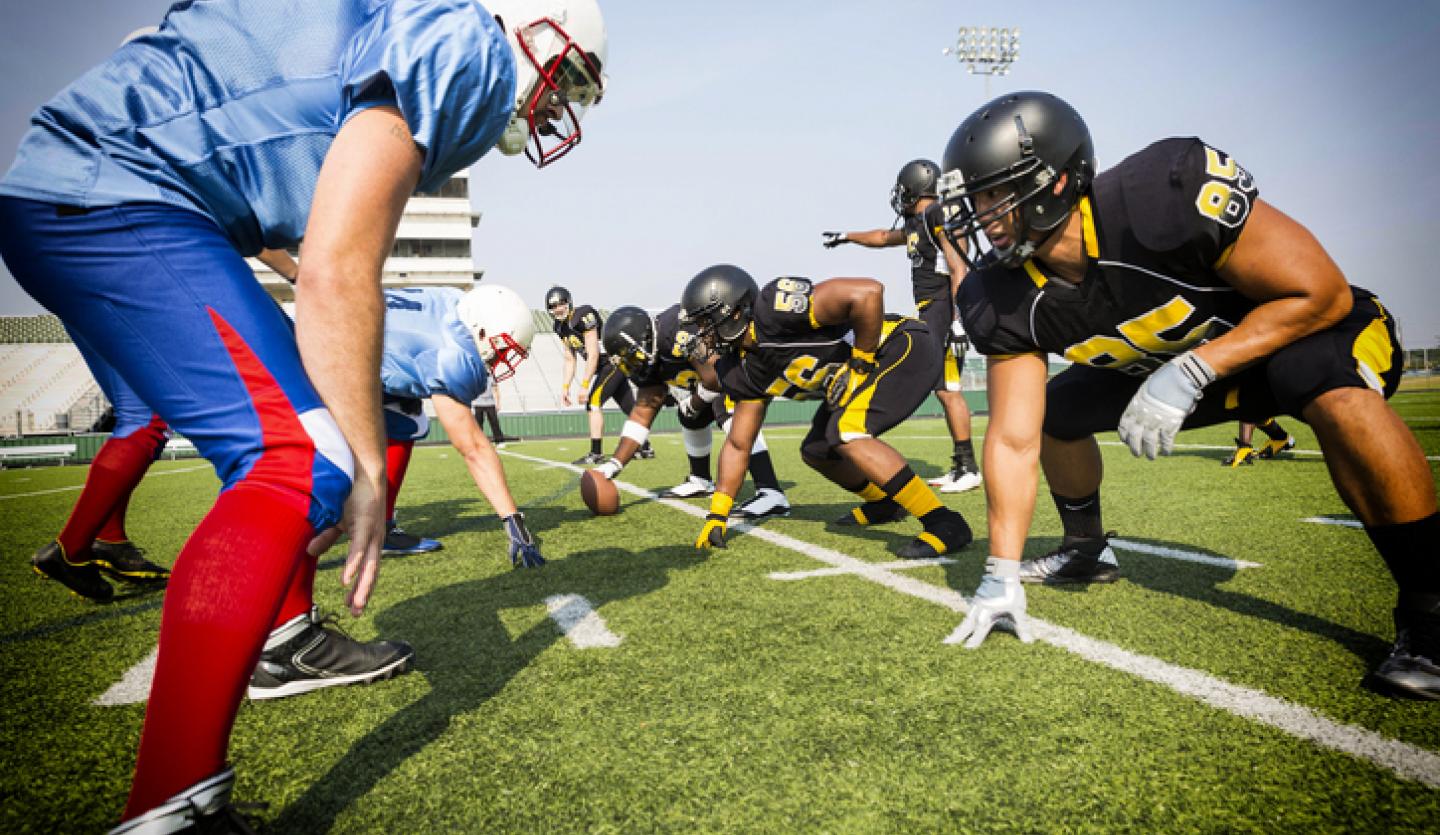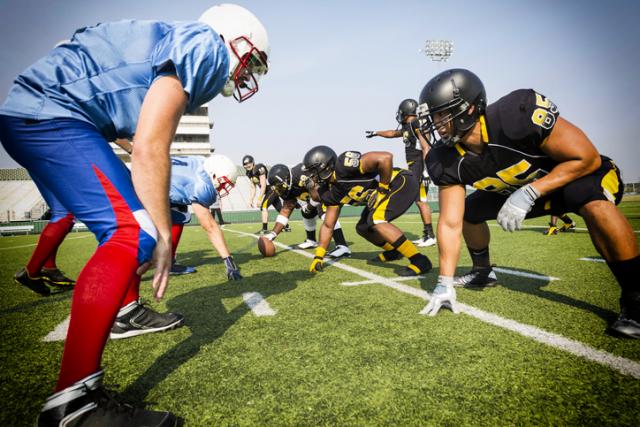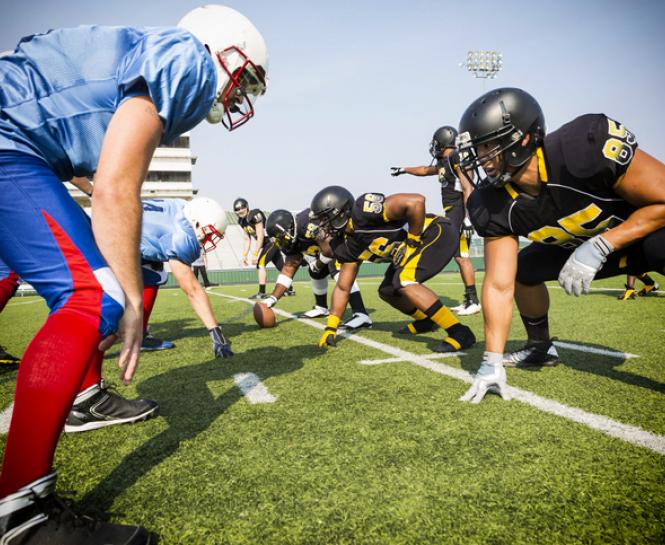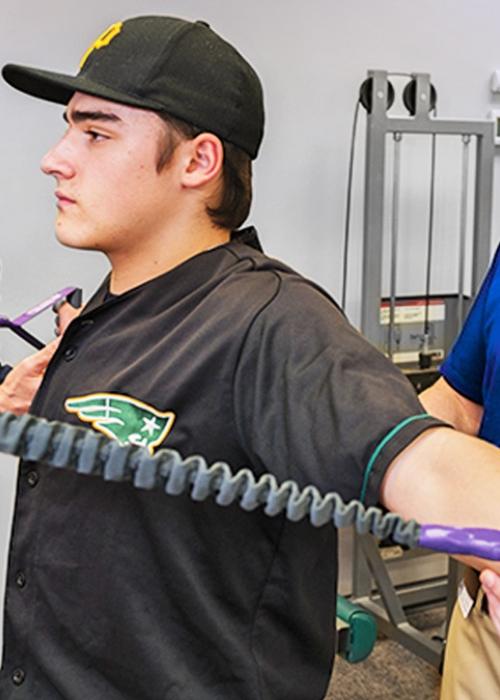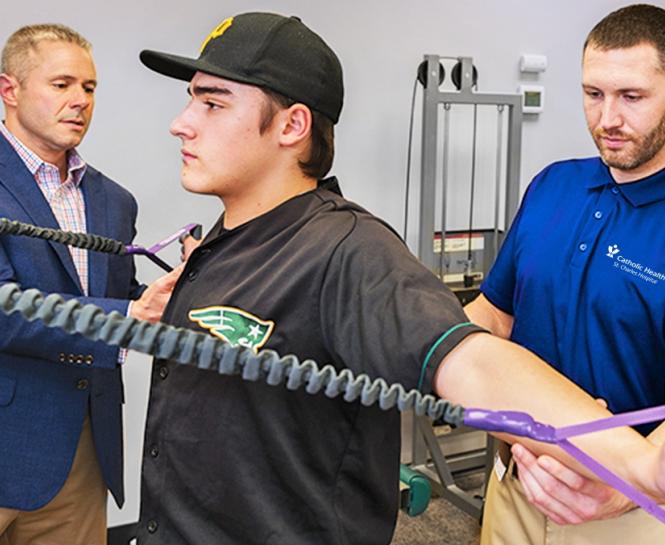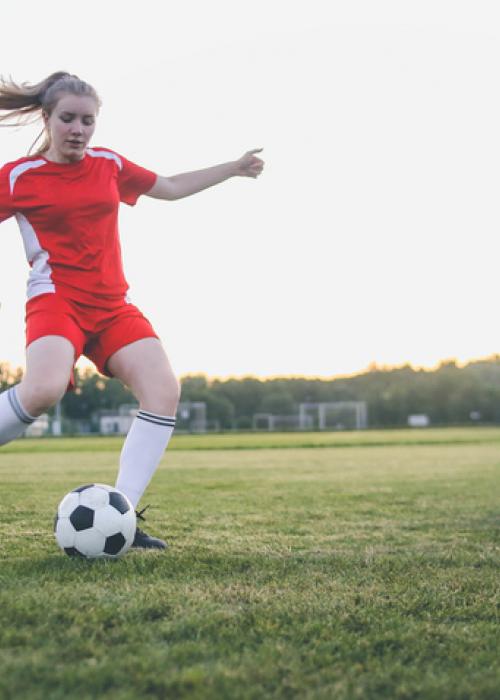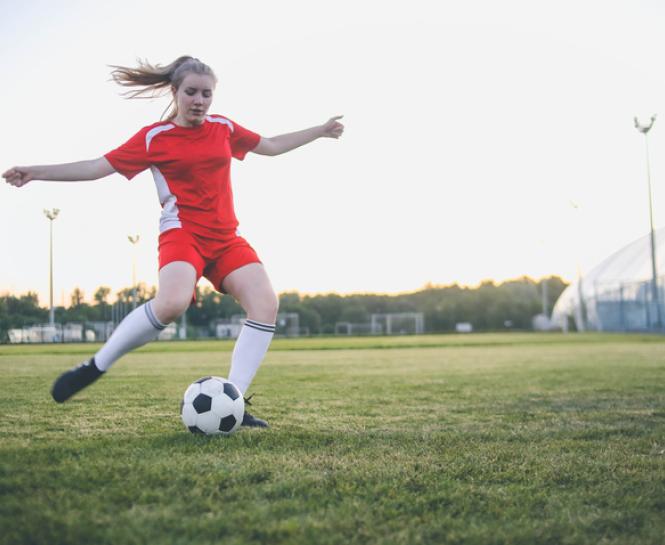“Each year, the ThinkSMART™ program at St. Charles Hospital treats student athletes across Long Island who suffer a concussion," said Dr. Jennifer Gray, St. Charles Hospital physical medicine & rehabilitation medical director. "It’s important for parents to understand the symptoms and treatments of concussion to help their child get treated and heal properly for a safe return to play.”
A concussion is a common but dangerous traumatic brain injury and one parents should take seriously.
Concussions can occur following any bump to the head but they’re much more likely to happen as a result of contact sports like football, soccer or lacrosse. In these sports, athletes are likely to experience not only a single blow to the head but a series of blows that cause a concussion.
The Centers for Disease Control and Prevention (CDC) estimates 3.8 million concussions result from sports each year. But many athletes, coaches and parents don’t recognize the signs of a concussion. What’s more, teenagers are more vulnerable to concussions than other age groups. A CDC study found 2.5 million teens experienced a concussion as a result of playing sports. And one million teens had two concussions in a single year.
Parents should be vigilant about the signs of concussions and work with coaches to ensure young athletes’ bodies have time to heal after experiencing a concussion.
What is a concussion?
A concussion is an injury to the brain caused by a bump, blow or jolt to the head that results in the brain moving back and forth very rapidly. When the sudden movement occurs, the brain may twist or bounce inside the skull. The movement causes biochemical changes in the brain, damaging brain cells in the process.
Are concussions serious?
Concussions are usually not life-threatening. But they’re dangerous all the same. A brain injury causes temporary changes within brain cells that make it difficult for the brain to communicate with the body. It’s important to give the brain enough time to heal from the injury before returning to the playing field.
What are the symptoms of a concussion?
Concussion symptoms sometimes don’t appear for several days and they may change during recovery. Symptoms of a concussion vary from person to person. For example, some may have a headache and nausea early on, but a week or two later, may have difficulty sleeping.
Mild symptoms can be easy to overlook or attribute to something else. That’s why parents should monitor their children who play sports for signs of concussion that may have gone unnoticed.
Mild concussion symptoms may include:
- Anxiety
- Difficulty concentrating or thinking clearly
- Dizziness
- Headache
- Insomnia or sleeping too much
- Irritability, sadness or feeling more emotional than usual
- Issues with memory
- Light sensitivity
- Nausea
- Vision problems
Concussion symptoms can be much more serious and require immediate medical attention. These symptoms include:
- Headache that gets progressively worse and won’t go away
- Loss of consciousness, severe lethargy, cannot wake up
- One dilated pupil
- Repeated vomiting
- Significant confusion or agitation
- Slurred speech
- Uncontrollable crying
- Weakness, numbness, convulsions, seizure
How are concussions diagnosed?
Diagnostic testing isn’t available for concussions. Physicians with specialty training in concussion management can diagnose the condition based on symptoms, balance, vision and reaction time, memory, motor speed and other parameters such as academic performance and behavior.
What is the recovery for a concussion?
To recover from a concussion, brain chemicals must return to normal functional levels. Your child’s body needs rest while this occurs.
- In the first days following the injury, limit physical activities that would put your child at risk of another head injury. Make sure they get plenty of rest and take naps as needed. Limit thinking/memory activities that may make symptoms worse.
- As symptoms improve, allow them to slowly return to nonstrenuous activities. Return to school gradually and as tolerated. Continue to get enough sleep and reduce naps to an age-appropriate schedule.
- Advancement of activities should be guided by a health care professional experienced with treating concussion to ensure optimal outcome and safe return to sport.
Concussion symptoms should go away within a few weeks when properly managed. Overexertion of brain cells can cause Post-Concussion Syndrome that lasts for months or years.
Find care at Catholic Health
The ThinkSMART!™ Program at St. Charles Hospital (Port Jefferson, NY) is Long Island's leading resource for the evaluation and treatment of concussions.
Our trained professionals are experts in providing a continuum of care from injury through recovery and eventually a safe return to sports. We also offer concussion education.
Learn more about our ThinkSMART!™ Program.
Call 866-MY-LI-DOC (866-695-4362) to find a Catholic Health physician near you.

